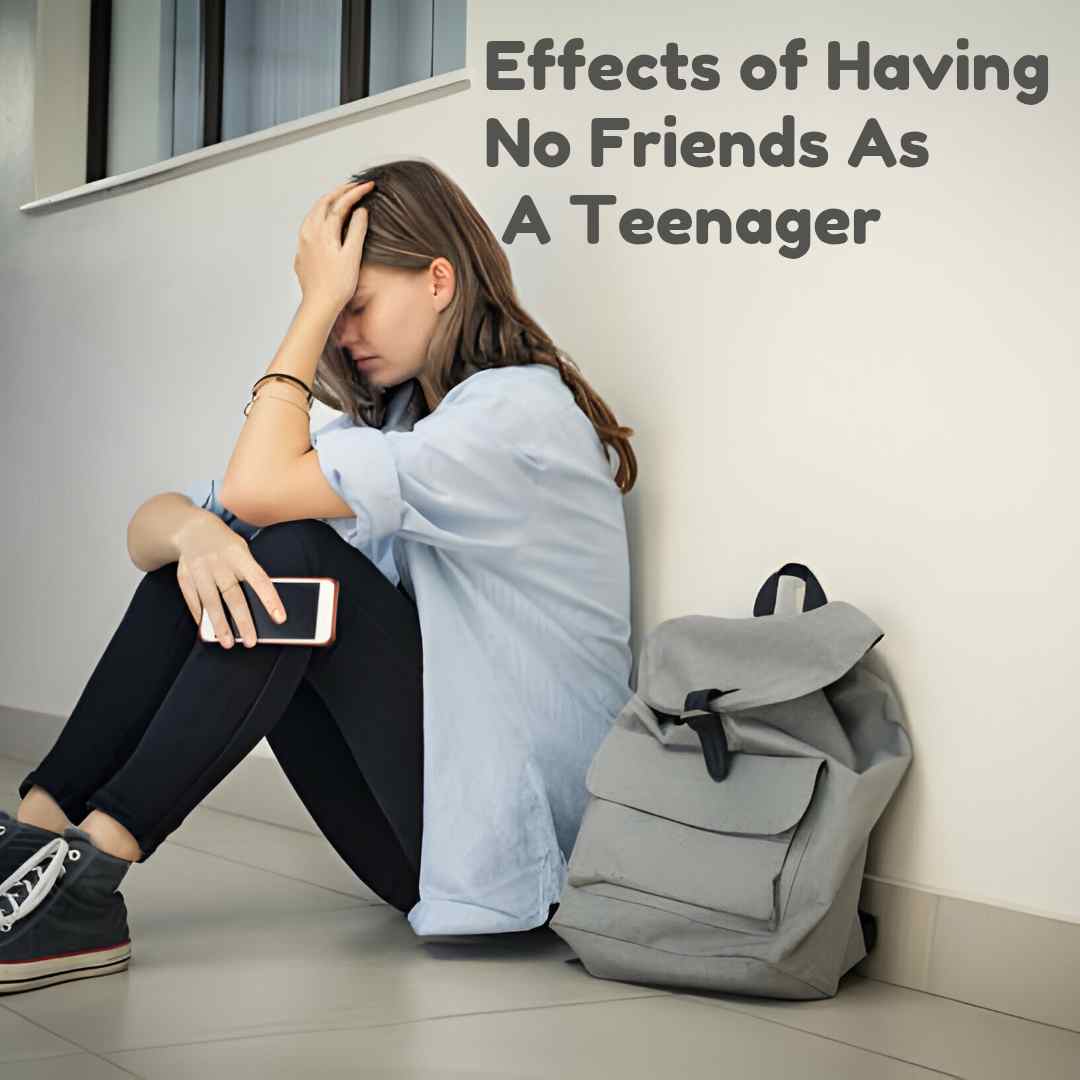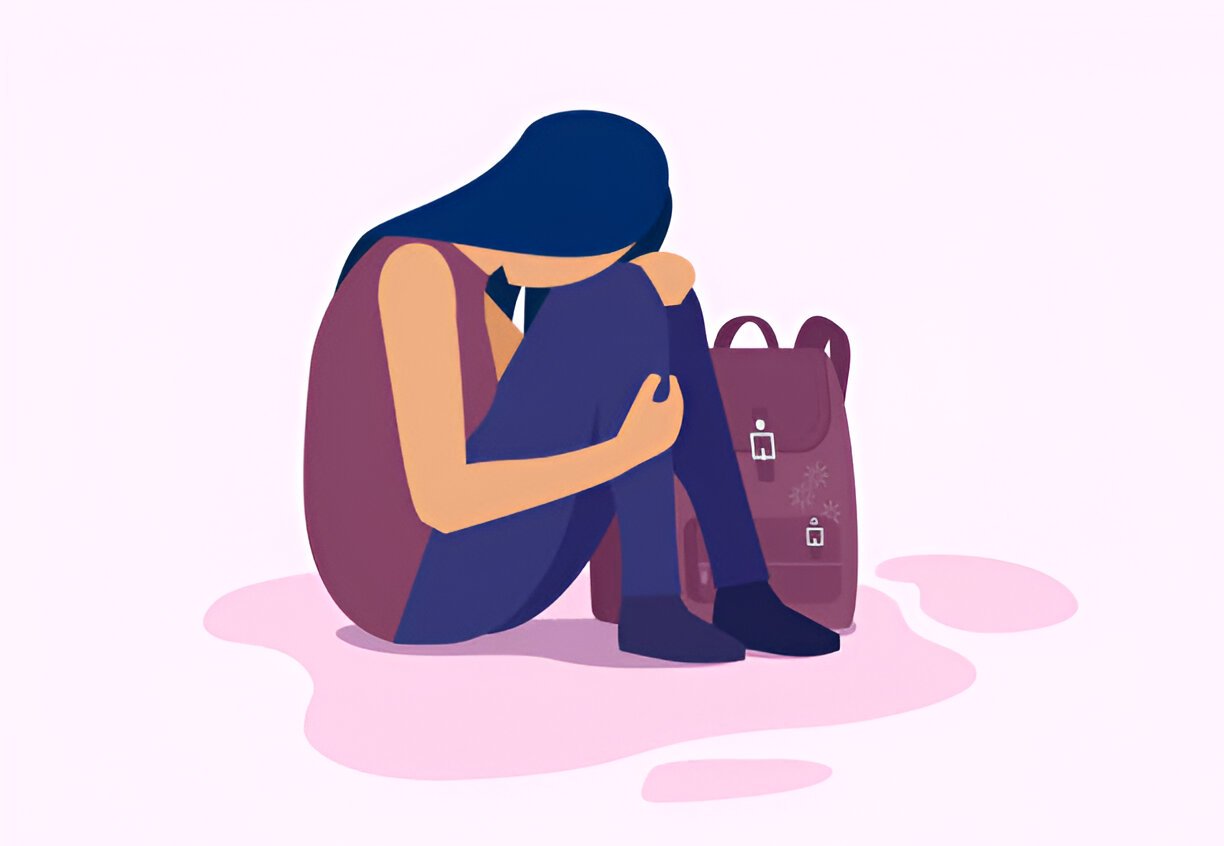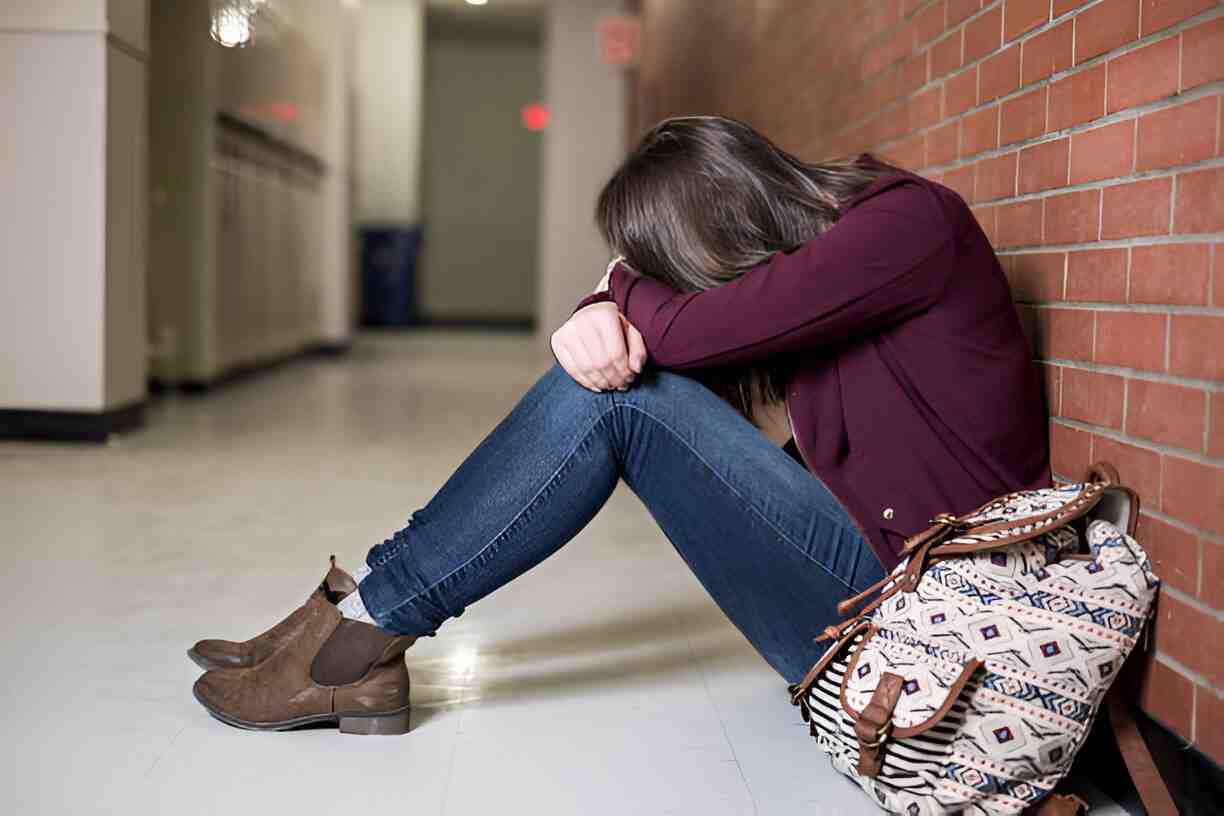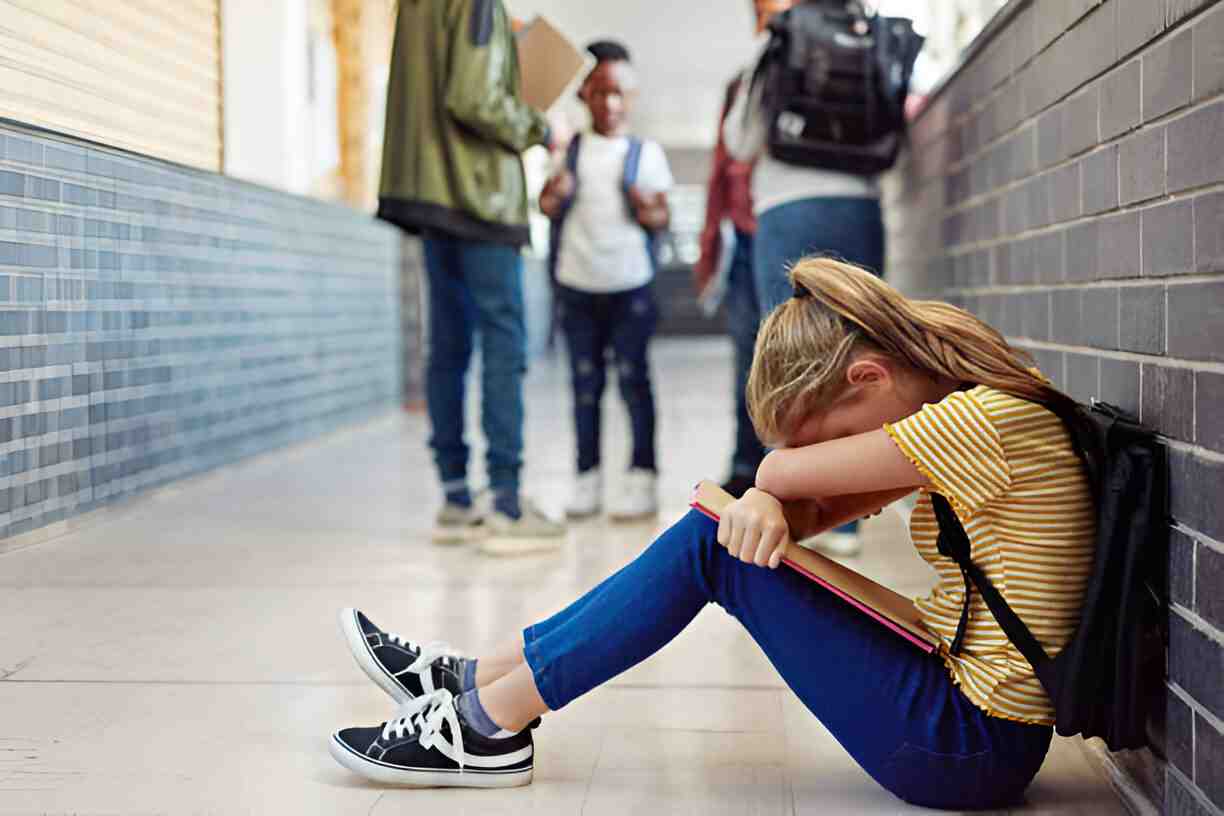Effects of Having No Friends As a Teenager
Growing up as a teenager is already an emotional, challenging, and self-discovering rollercoaster. Imagine entering the packed school cafeteria and looking around for a familiar face, only to find that nobody is waving at you. As conversations and laughter erupt around you, you sit by yourself and pretend to be occupied with your phone. For many teenagers, this isn’t just a one-time experience—it’s their everyday reality.
Teenage friendships are more than just a social bonus; they shape confidence, emotional well-being, and even future relationships. But what is the effect of having no friends as a teenager? The effects go deeper than just feeling left out. From loneliness and low self-esteem to struggles with mental health, the impact can last well into adulthood. Let’s take a closer look at how the absence of friendships can shape a teen’s life.

Effects of Having No Friends As a Teenager
Teenage years are supposed to be filled with laughter, late-night talks, and unforgettable memories with friends. But what happens when a teenager has no close friends to share those moments with? Let’s look deeper into the reality of social isolation during these crucial years.
1. Breaking Loneliness That Feels Never-Ending
Having no friends makes teenagers feel lonely all the time. It is like a burdensome weight that they are unable to lift. Deep emotional emptiness may result from it. A lonely teen might spend their days hoping someone would text them or invite them out, while others joke around in the hallways or organize get-togethers for the weekend. When these teenagers have no one with whom to share their feelings and experiences, they tend to withdraw, overanalyzing every encounter and feeling cut off from the outside world.
Don’t forget to read:
2. Uncertain Sense of Self-Worth
Friends remind us that we are important. When we’re down, they cheer us up and validate our thoughts and feelings. Without that support, a teen may begin to question their own worth. “Why doesn’t anyone want to be my friend?” Is it strange? These self-doubts can undermine confidence and lead to long-term insecurities
3. Struggles With Basic Social Skills
Friendships allow you to practice real-world social skills such as communication, compromise, and emotional intelligence. A teen who lacks these experiences may struggle to hold conversations, read social cues, and feel anxious in group settings. As they get older, a lack of practice can make it difficult to form relationships in college or at work.

4. Higher Risk of Depression and Anxiety
There is evidence that links mental health issues to a lack of friends. Teenagers who are socially excluded may experience depression, worthlessness, and extreme anxiety. These feelings can lead to panic attacks, clinical depression, and even self-harm.

5. Increased Dependence on the Internet
Teenagers without friends frequently turn to their screens for comfort, whether through video games, social media, or binge-watching television shows. Despite the potential benefits of virtual relationships, excessive screen time typically replaces face-to-face social interactions, making it more difficult to form friendships in person.
6. Academic and Career Challenges
It might not seem connected, but friendships actually play a big role in academic success. A teenager with friends has study partners, group project allies, and a support system that keeps them motivated. A lonely teenager, on the other hand, might struggle with motivation, feeling disconnected from school life, and even skipping classes out of discouragement.
7. Vulnerability to Unhealthy Relationships
Teens who lack friends may become desperate for any kind of connection, even if it’s toxic, which can result in one-sided friendships, unhealthy attachments, or being taken advantage of by people who don’t truly care about them
8. Difficulty Handling Life’s Ups and Downs
Friendship is more than just having fun; it is also about providing emotional support during difficult times. Without friends, a teen may struggle to cope with stress, heartbreak, or failure. They may bottle up their emotions, feeling as if they have no one to turn to, which can result in emotional outbursts or internal pain
9. Potential for Risky Behavior or Rebellion
Teens who feel invisible or unimportant may turn to extreme measures to gain attention, such as acting out in behavior, or engaging in unhealthy ways of seeking attention. Loneliness can lead to self-destructive behaviors.
I knew a boy in my neighborhood who had no real friends in school. Desperate to be accepted, he started hanging out with older kids who introduced him to smoking and skipping school. It wasn’t that he wanted to do those things—he just wanted to feel included somewhere, even if it meant making poor choices.
10. Difficulty Finding Their Identity
Teenagers depend on their friends to help them discover who they are; they pick up habits, slang, and even hobbies from those around them.

Why is having no friends bad for your health?
Having no friends can negatively impact your health in several ways.
1. Increased Stress and Anxiety
Without a support network, people may struggle to cope with everyday stressors. Friends provide emotional support, lowering cortisol and other stress hormones. Chronic stress can cause anxiety disorders, hypertension, and other health problems

2. Higher Risk of Depression
Social isolation is a major risk factor for depression. Feeling alone and isolated due to a lack of friends can lead to low self-esteem, chronic melancholy, and a lack of motivation.
3. Weakened Immune System
Studies have shown that loneliness may weaken immunity, making the body more vulnerable to infections and illnesses. Social interactions can help regulate immune responses and preserve bodily health.
4. Poor Cardiovascular Health
Loneliness has been linked to an increased risk of heart disease and stroke, while social support reduces stress and promotes heart-healthy behaviors, while isolation can lead to unhealthy habits like not exercising and eating poorly.
5. Unhealthy Lifestyle Choices
Those who lack friends are more likely to engage in unhealthy behaviors like smoking, overeating, or excessive drinking because they may use these as a coping mechanism for their loneliness.
6. Cognitive Decline and Dementia Risk
Lack of social engagement has been linked to an increased risk of dementia and cognitive decline because social interactions keep the brain active, which is essential for mental acuity.
7. Shorter Lifespan
Research has shown that social isolation is associated with a lower life expectancy than smoking fifteen cigarettes a day. One’s physical and mental health are negatively impacted by loneliness, which increases the risk of dying young. Lack of Psychological Support

8. Lack of Emotional Support
Friends celebrate each other’s victories and help each other through tough times. Without them, people may find it difficult to overcome life’s challenges and experience feelings of abandonment, which may lead to feelings of exhaustion and despair.
9. Low Self-Esteem and Social Skills Decline
Someone who doesn’t have any friends may feel unworthy or inadequate. They might also be less able to interact with others, which would make friendships even more challenging in the future.
10. Higher Risk of Suicide
Two significant risk factors for suicidal thoughts and actions are loneliness and a lack of social support. Strong friendships can offer inspiration, guidance, and hope for overcoming hardship.
11. Slower Recovery from Illness
Following illnesses, surgeries, or major health issues, friendship offers both emotional and practical support during the healing process. Without help, the healing process may take longer.

12. Lower Motivation and Productivity
Social interactions can boost ambition, confidence, and motivation. People without friends may struggle to set and achieve goals, and they may become demotivated. Personal development might be hampered.

Are there benefits of having no friends
Yes, there are benefits to having friends, no doubt, but depending on one’s perspective and circumstances, there might also be benefits to neither.
1. More Independence
When friends aren’t influencing your decisions, you can focus on your own goals and personal growth without their interference
2. Less Drama and Conflict
Friendships can sometimes be accompanied by misunderstandings, disagreements, or emotional strains. When you’re alone, social problems might be less prevalent.
3. More Time for Self-Improvement
You can spend more time on hobbies, skill development, and personal development when there are no social distractions around
4. Freedom from Peer Pressure
Without any friends, you won’t feel pressured to adhere to fads, social norms, or risky behaviors that might be against your values.
5. Financial Savings
Socializing usually comes with costs (e.g., outings, gifts, travel). Being by yourself can reduce these costs.
6. Better Focus on Career or Academics
Eliminating social distractions may give you more time and mental energy to focus on your studies or work
7. Less Drama and Stress
Sometimes friendships can experience emotional strains, disagreements, or misunderstandings. Being alone makes it easier to handle interpersonal issues
8. Increased Independence
Once you are not dependent on friends for approval or company, you become more self-sufficient and independent.
9. More Productivity
When social obligations don’t take up your time, you may find it easier to focus on your work, studies, or projects.
10. Deep Self-Reflection
You can become more self-aware and clear-headed by spending more time alone and learning more about yourself
In conclusion, the emotional and mental well-being of adolescents can be greatly impacted by the lack of friends they have during their adolescence . The teenage years are crucial for developing social skills, self-esteem, and a sense of belonging. Without close friendships, teens may experience feelings of loneliness, isolation, and even depression.
It can also affect academic performance and social development. However, with support from family, counseling, and engaging in activities that build confidence and social skills, teenagers can overcome these struggles and build meaningful connections in the future.


